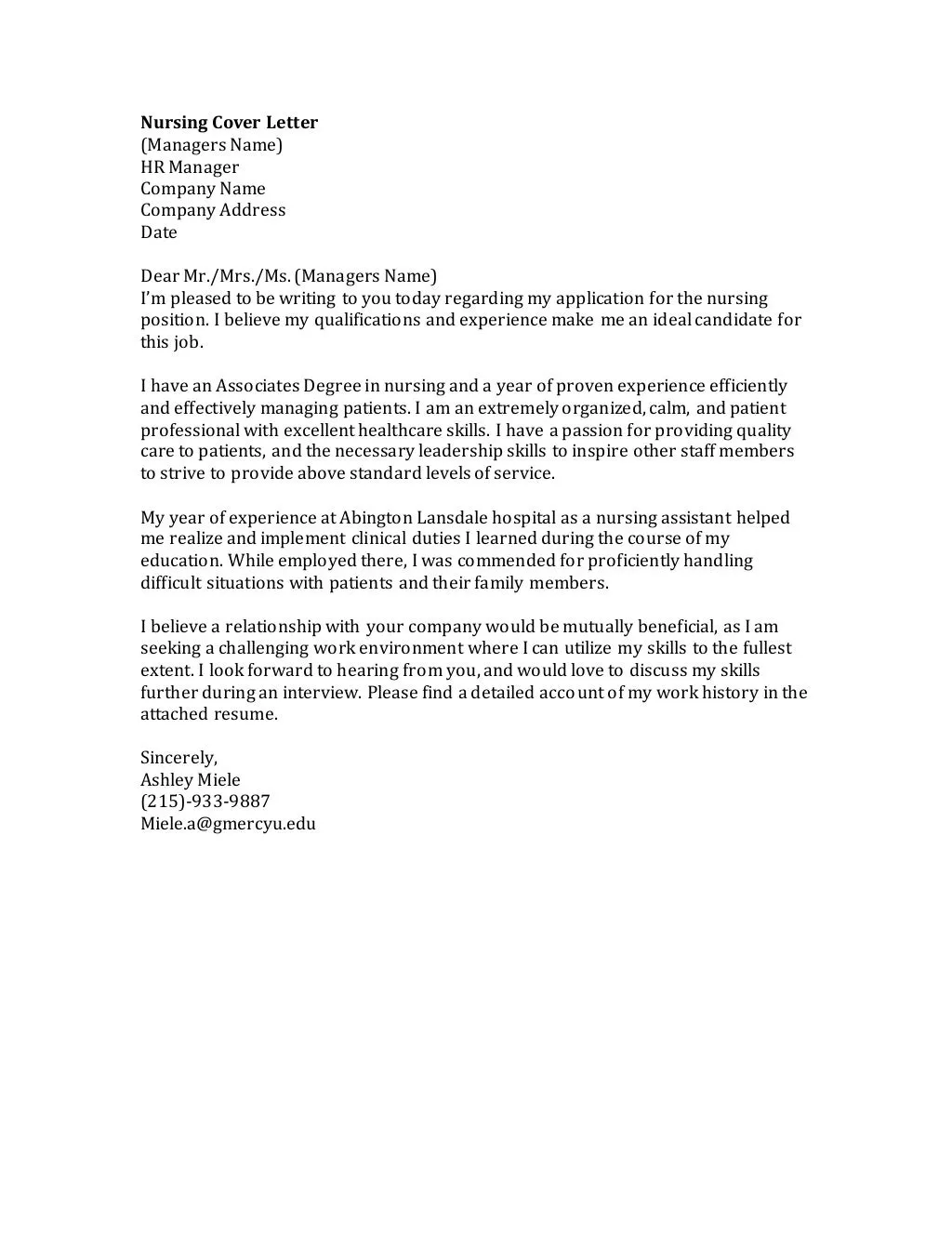Key Elements of a Nursing Home Cover Letter
Crafting a compelling cover letter is crucial when applying for a nursing home position. Your cover letter serves as your introduction, allowing you to highlight your qualifications and express your genuine interest in the role. It should complement your resume by expanding on your experiences and showcasing your personality. Remember that a well-written cover letter can significantly increase your chances of landing an interview. Before you start writing, carefully review the job description, identify the key requirements, and tailor your letter to match the specific needs of the nursing home. This initial step is very important, because this will showcase your understanding of the role and the organization.
Highlighting Relevant Skills
Your cover letter is an opportunity to highlight the skills that make you a great fit for the position. Consider what the nursing home values, and then list the skills that relate to the job. Focus on skills that are essential in the healthcare environment, such as patient care, medication administration, wound care, and documentation. For example, if the job description mentions the need for strong communication skills, provide specific examples of how you’ve effectively communicated with patients, families, and other healthcare professionals. Be sure to demonstrate your understanding of healthcare regulations and your commitment to providing safe, high-quality care.
Emphasizing Experience
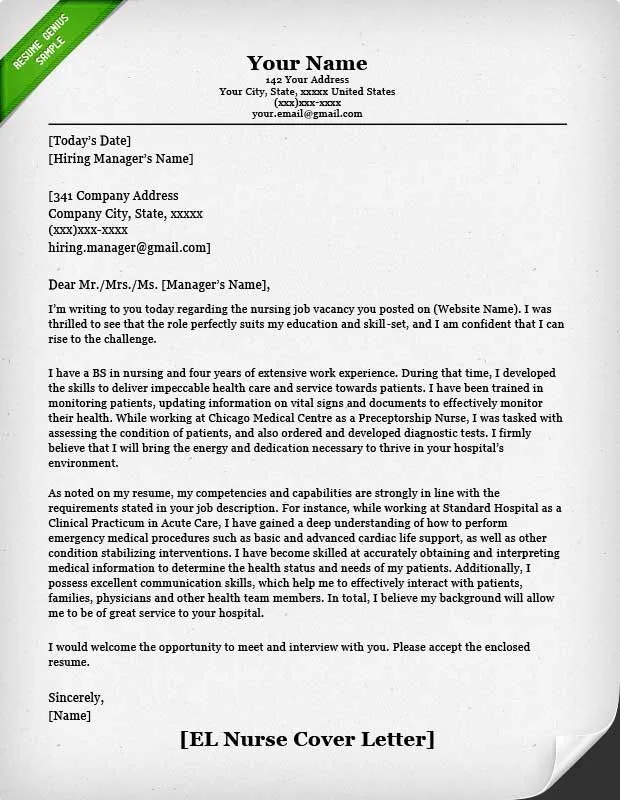
While your resume provides a chronological overview of your work history, your cover letter is where you can elaborate on your experiences and their relevance to the role. Instead of just listing your previous job titles, provide context. Describe your responsibilities and the impact of your contributions in each role. For instance, if you have experience working with elderly patients or those with specific medical conditions, make sure to mention this. The more specific you are in describing your experiences, the better the hiring manager will understand your qualifications. Emphasizing your past experiences will give you a significant advantage over other applicants.
Quantifying Accomplishments
Don’t just list your job duties; quantify your accomplishments whenever possible. Using numbers and metrics in your cover letter is an effective way to demonstrate your impact. For example, instead of saying you managed patient care, you could state that you ‘managed the care of 20+ patients daily, ensuring accurate medication administration and timely responses to medical needs.’ Quantifying your accomplishments makes your letter more compelling and showcases your ability to achieve results. Think about metrics such as the number of patients cared for, positive feedback received, or improvements you made in patient outcomes. These metrics provide concrete proof of your capabilities and expertise. It is imperative to write quantifiable accomplishment in your cover letter.
Showcasing Passion and Values
Nursing homes provide a unique care environment, and your passion for the role is important. A cover letter allows you to showcase your passion for caring for the elderly and your understanding of the challenges and rewards of working in a nursing home. Express your enthusiasm for providing compassionate care, promoting patient well-being, and working within a team. Be authentic in your writing, and let your personality shine through. Your genuine passion for the role will set you apart from other candidates and make the hiring manager want to learn more about you. Explain why this job is important for you to land.
Demonstrating Empathy and Compassion
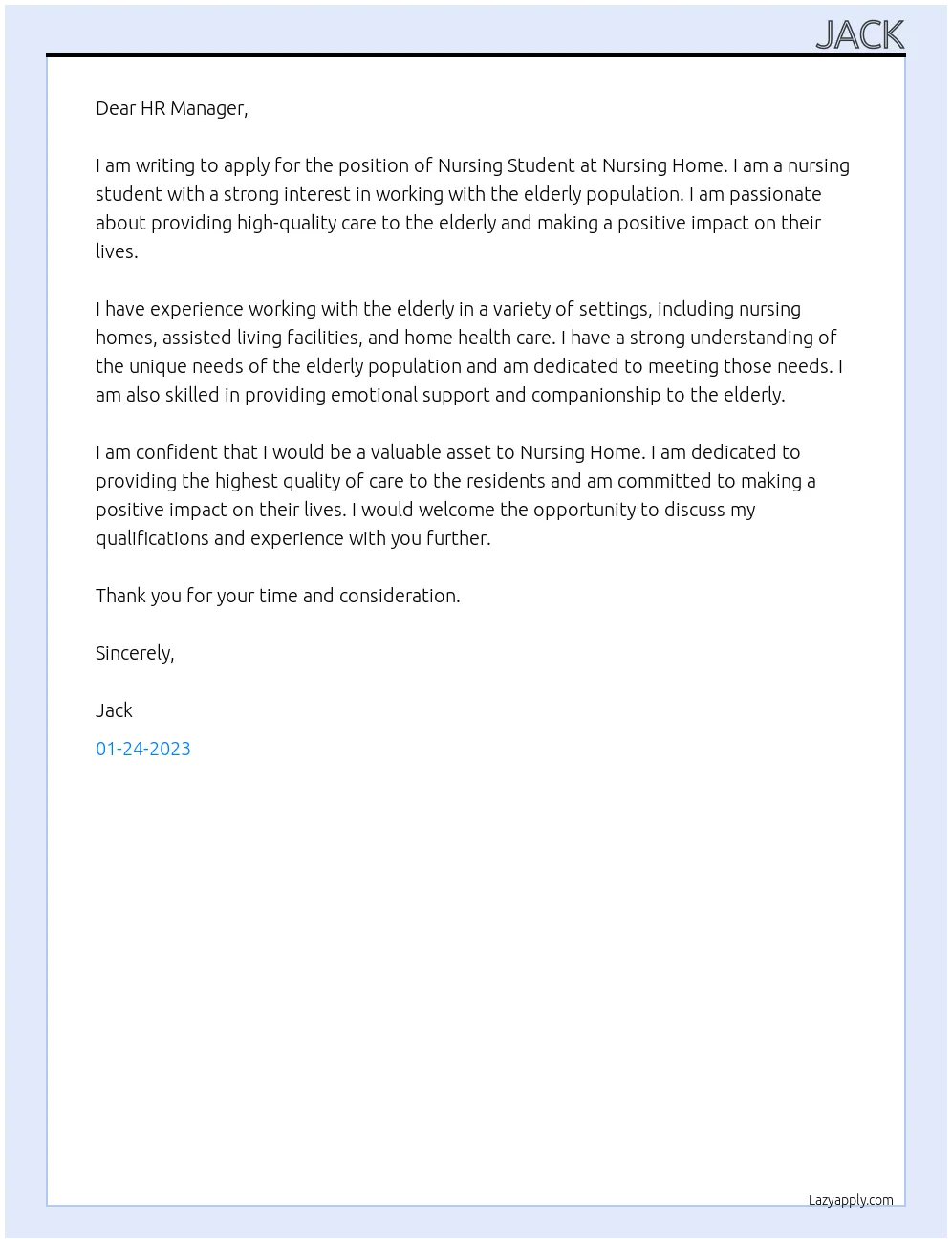
Empathy and compassion are essential qualities in nursing home care, so make sure these values are clear in your cover letter. Share examples of how you’ve demonstrated empathy and compassion in previous roles. For instance, you might describe how you provided emotional support to a patient, comforted a grieving family member, or went above and beyond to meet a patient’s needs. Demonstrate your ability to connect with patients on a personal level and understand their individual needs. Highlight your sensitivity and ability to provide comfort during difficult times. This will leave a lasting impression on the reader.
Expressing a Patient-Centered Approach
Nursing home care should be patient-centered, and your cover letter should reflect this philosophy. Explain your approach to patient care, emphasizing your commitment to treating each patient with dignity, respect, and individual attention. Describe how you ensure patient safety and well-being. Highlight your ability to effectively communicate with patients and their families. Explain how you involve patients in their care decisions. This will show that you understand the importance of patient-centered care and are committed to providing the best possible experience for residents. Be a person that the patients can trust.
Tailoring to the Nursing Home’s Mission
Before submitting your cover letter, research the nursing home’s mission, values, and services. Then, tailor your letter to align with the organization’s goals. Highlight how your skills and experience match their specific needs and demonstrate your understanding of their mission. Show that you share their values, such as providing high-quality care, promoting patient dignity, or fostering a supportive environment. This shows your genuine interest in working for that specific organization and enhances your application’s relevance. Tailoring is an important step to make a good cover letter.
Formatting and Presentation
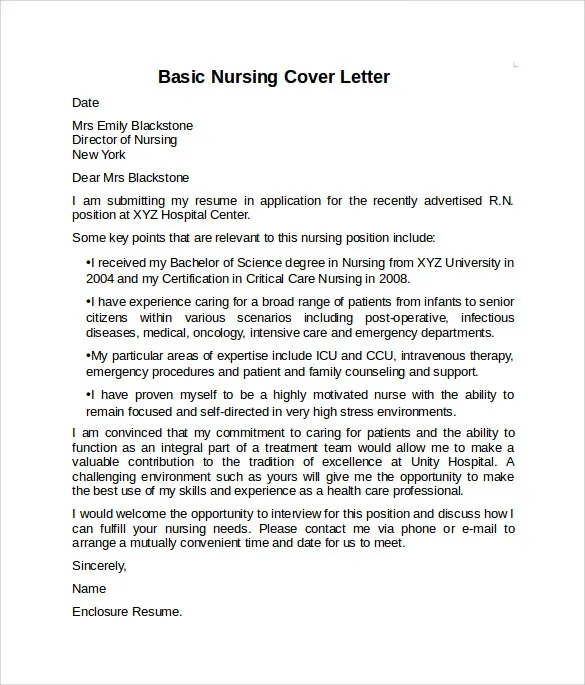
Your cover letter’s format and presentation are important to making a good impression. Use a professional format, with clear headings, concise paragraphs, and easy-to-read fonts. Make sure your letter is well-organized and visually appealing. Proofread carefully for any grammatical errors or typos. A clean and professional layout demonstrates your attention to detail and professionalism. Use a standard business letter format, including your contact information, the date, the hiring manager’s name, and a professional closing. Remember, a well-formatted cover letter creates a favorable first impression.
Using a Professional Tone
The tone of your cover letter should be professional and respectful. Avoid using slang or casual language. Address the hiring manager by name, if possible, to show that you’ve taken the time to research the organization. Be polite and courteous in your writing. Show your enthusiasm and appreciation for the opportunity to apply. Maintain a positive and confident tone throughout your letter, highlighting your abilities and expressing your desire to contribute to the team. Always maintain professionalism when expressing yourself through the cover letter.
Proofreading for Errors
Before submitting your cover letter, always proofread it carefully for any errors. Grammatical errors and typos can detract from your application and make you seem less professional. Read your letter multiple times, checking for any spelling, punctuation, or grammatical mistakes. Consider asking a friend or colleague to review your cover letter for a fresh perspective. Proper proofreading demonstrates attention to detail and commitment to excellence. Using grammar tools will also help you get rid of errors and typos in your cover letter.
Including Contact Information
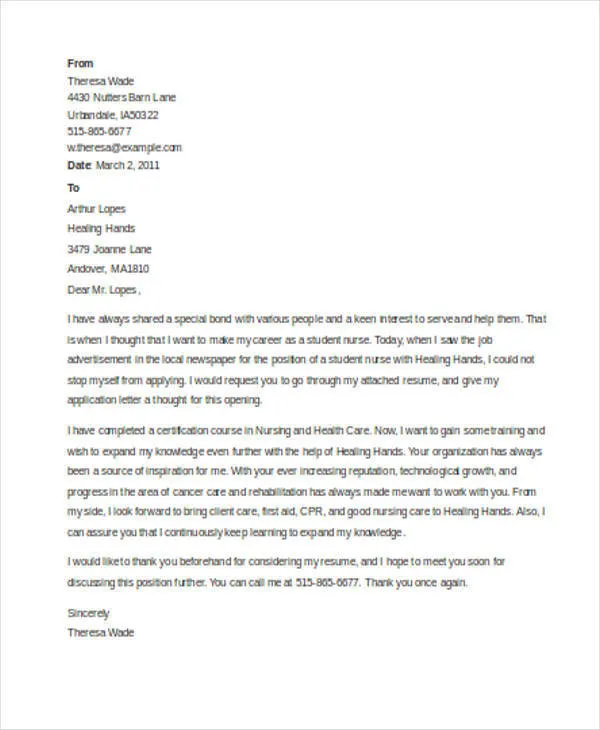
Make sure to include all your contact information in your cover letter. Include your full name, address, phone number, and email address. This information makes it easy for the hiring manager to reach you for an interview. Ensure your contact information is accurate and up to date. Consider including a link to your professional online profile, such as LinkedIn. Your email address should be professional and appropriate. Providing complete and accurate contact information is a crucial step in making your cover letter successful.
Following Up After Submission
After submitting your cover letter and resume, it is appropriate to follow up with the hiring manager to express your continued interest. Send a brief, polite email or make a phone call a week or two after applying. In your follow-up, reiterate your interest in the position and mention your appreciation for the opportunity to be considered. This shows your initiative and enthusiasm. It is a good way to be remembered. Be sure to tailor the follow-up to the specific organization. If you don’t hear back, you can follow up a second time to check on the status of your application. Be sure to thank the hiring manager for their time.
Timing Your Application
The timing of your application can impact your chances of getting hired. Apply for nursing home positions as soon as possible after the job is posted. If you wait too long, the position may already be filled. Be aware of the nursing home’s hiring process and any deadlines. If the job posting states a deadline, make sure to submit your application before it expires. Also, be aware of any seasonal hiring trends. Sometimes, nursing homes have increased hiring needs during specific times of the year. Applying at the right time can increase your chances of being considered for an interview.
Preparing for an Interview
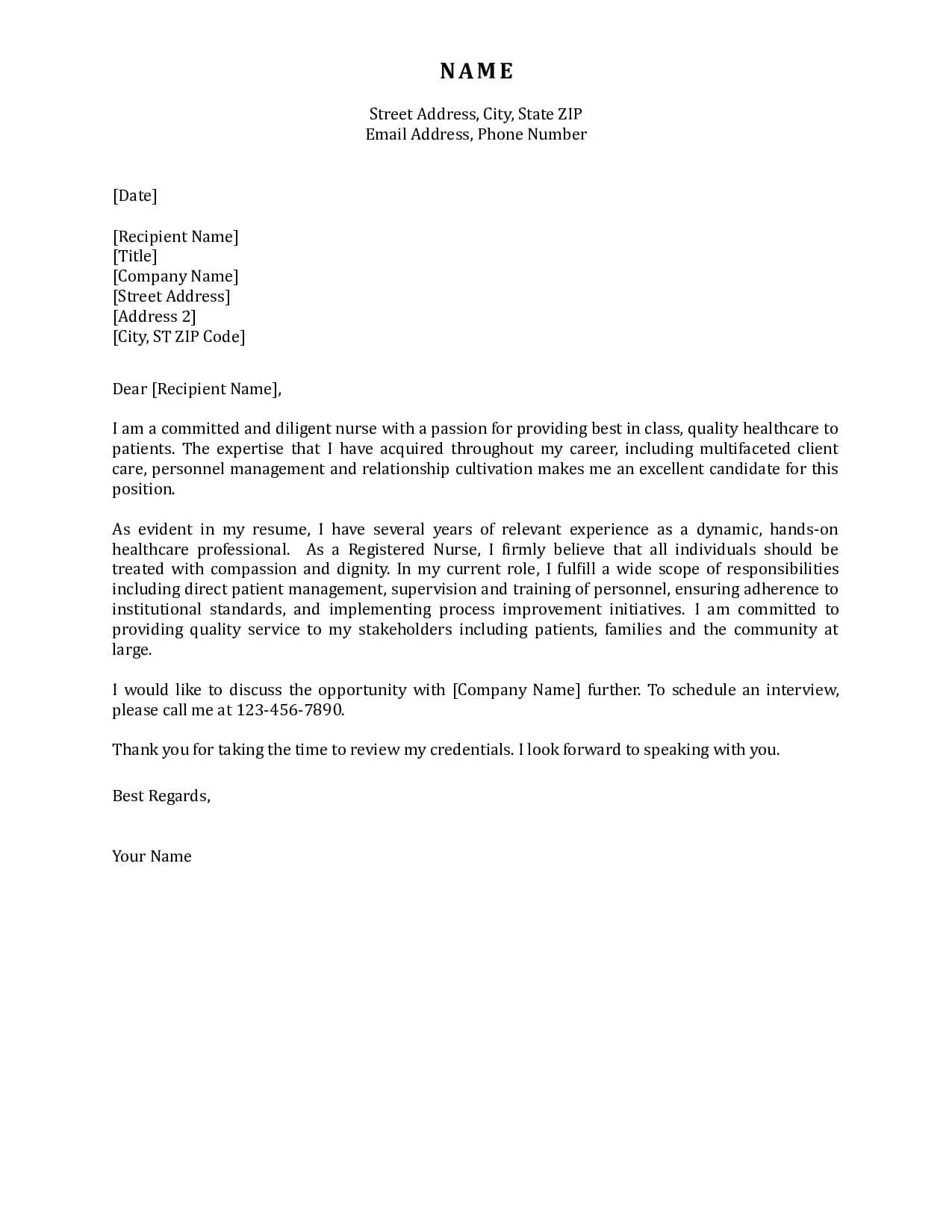
If your cover letter leads to an interview, be prepared to discuss the information in your cover letter and resume. Review your cover letter and resume thoroughly before the interview. Practice answering common interview questions, such as questions about your skills, experience, and reasons for wanting the job. Prepare questions to ask the interviewer about the nursing home, the role, and the team. This shows your interest and initiative. Plan your outfit and arrive on time for the interview. The interview is your final chance to impress the hiring manager and highlight your suitability for the role. It is crucial to make a great impression.
